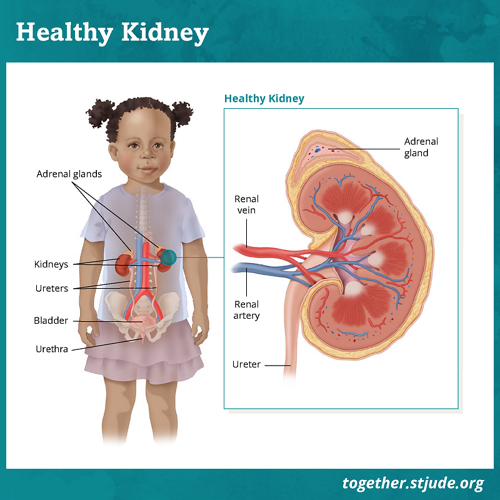Also known as the excretory system
urinary system
Tube that eliminates urine from the body
urethra
Liquid waste that is 95% water
urine
Accumulation of minerals and acid salts that lodge in the kidney or ureters
Kidney stones or lithiasis
These are part of the kidney that actually filters blood and creates urine.
Nephrons
Two bean-shaped organs lateral to the vertebral column that filter the wastes out of the blood
kidneys
the last stage of chronic kidney disease
End-stage renal disease
Hollow, muscular sac that stores urine until it is released.
bladder
a sudden and rapid decrease in the ability of the kidneys to filter the blood that develops in less than two days
Acute renal failure
What is the best way to prevent kidney Stones
Drink lots of water
A state of equilibrium the body strives to be in
homeostasis
this blocks waste movement in the kidney
kidney stone
Two tubes leading from the kidneys to the bladder
ureters
Blood in the urine is called.
hematuria
where are your kidneys located
the midback, under your ribs next to your vertebral columns.
Functional unit of the kidney
Nephron
Besides the integumentary system the skin is also part of the ________ system
excretory
Artery that supplies the kidneys with blood
renal artery
The ________________ is the inner portion of the kidney where urine is formed.
renal medulla
These urinary system infections are often caused by the bacteria Escherichia coli (E. coli).
Urinary tract infections (UTI)
the failure of the body's blood filter
Renal (kidney) failure
List the parts of the urinary system
kidney
ureter
bladder
urethra
the gradual loss of kidney function over many months or years
Chronic renal failure
Capillaries that are found surrounding the nephrons are called:
These doctors focus on the overall function of the kidney and diseases that affect the kidney. Typically they obtain either blood or urine samples to diagnose underlying conditions.
Nephrologists who work togetdher with Uriologist

